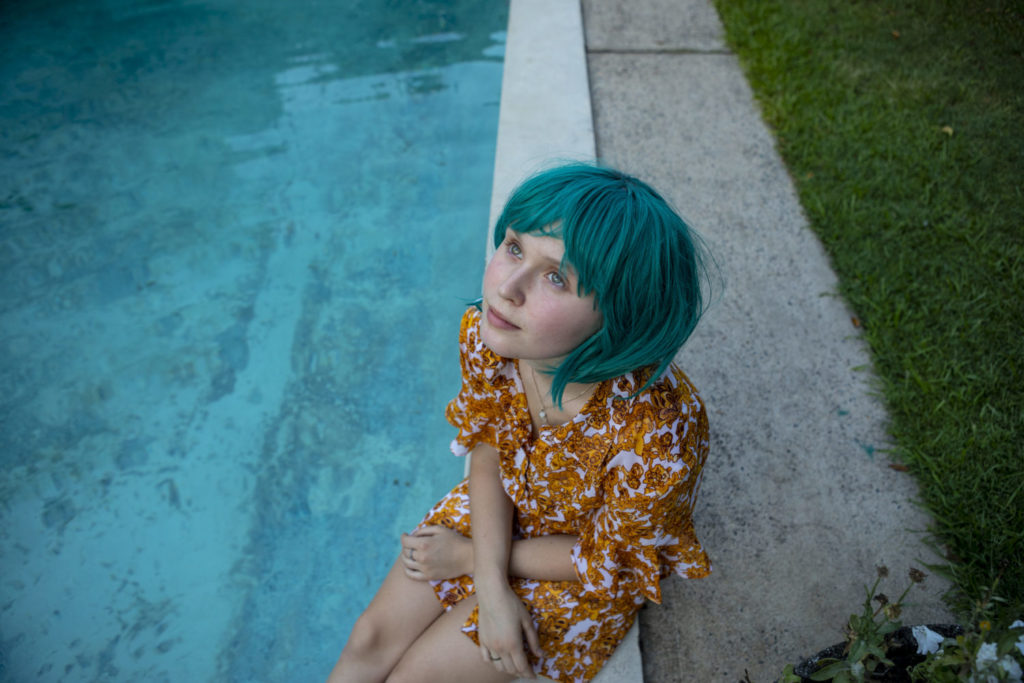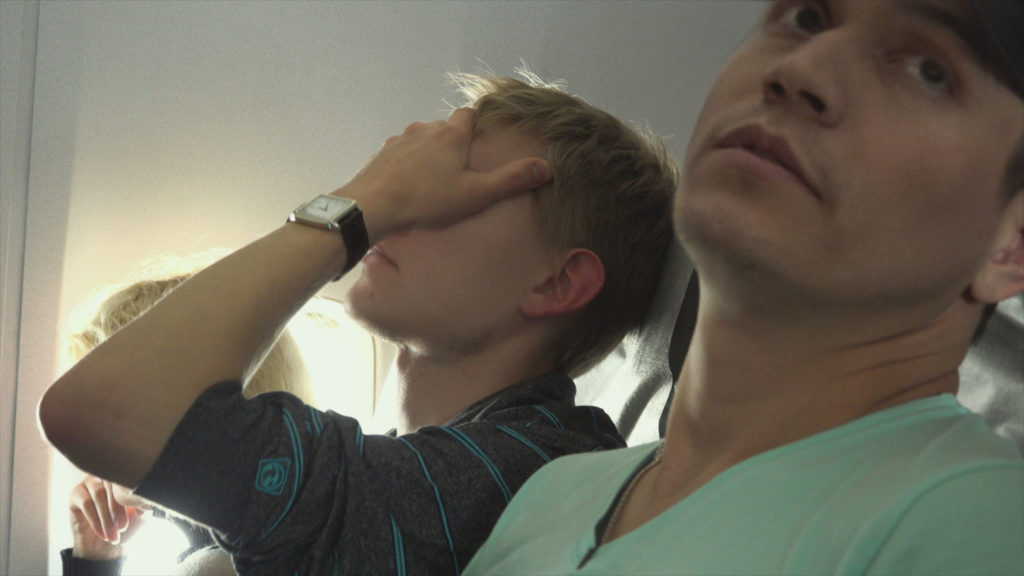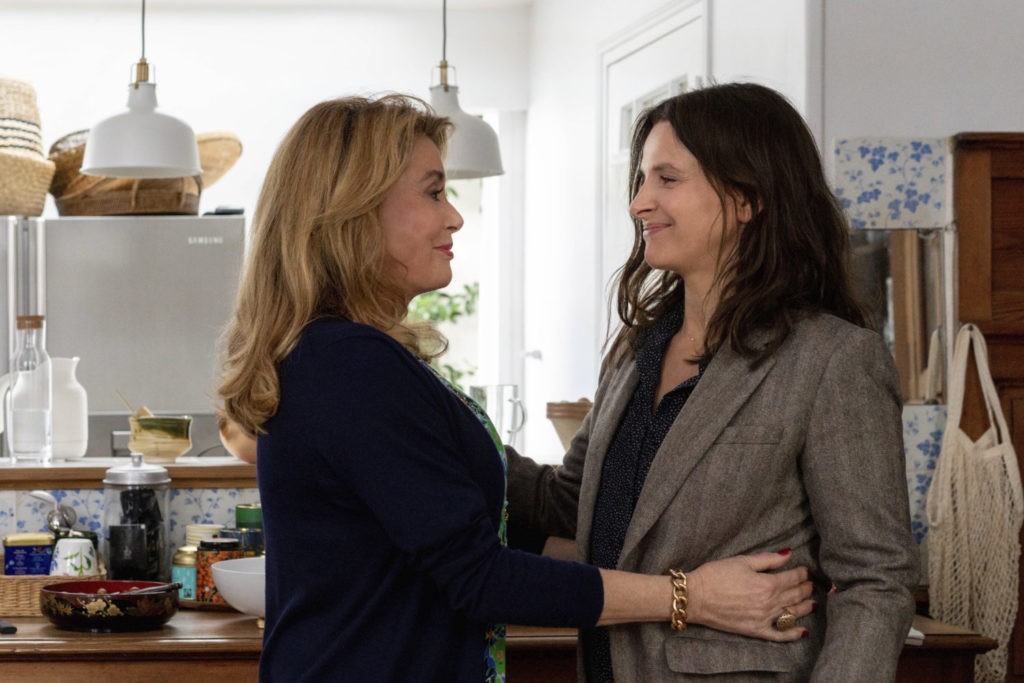Irvine Weekly’s Movie Guide is your look at the hottest films available on your TV sets, electronic devices and — as coronavirus restrictions continue to change — in select theaters and drive-ins throughout Southern California. At press time, theaters and multiplexes such as AMC chains indicate that previously planned re-openings in mid-July have been postponed to the end of July. This too, may be adjusted, at least in California, as Governor Gavin Newsom assesses COVID-19 spikes and moves reopenings accordingly.
The good news is that there’s no shortage of diverse and engaging films to see. And as always, we let you know what’s worth the watchtime — from indie art house gems to popcorn-perfect blockbusters to new movies garnering buzz, indicating where you can catch them whether it be digital Video on Demand (VOD) or streaming subscription services. This week, film critic Chuck Wilson shares his picks.
The Surrogate | VOD
As rich with heady dialogue as a good play, the debut feature from writer-director Jeremy Hersh is sure to inspire provocative post-screening conversation. In a commanding film debut, Jasmine Batchelor stars as Jess, a Brooklyn IT specialist pregnant with a child she’s carrying for her best friend Josh (Chris Perfetti) and his husband, Aaron (Sullivan Jones). When tests reveal that the child will be born with Down syndrome, Jess struggles to respond optimistically, even as Josh, Aaron and Jess’s own parents are consumed by doubt. It’s in Jess’s nature to put the concerns of others first, but gradually, she comes to see that the choice here isn’t just Joss and Aaron’s to make.
A movie where every scene could easily come with a topic sentence title card — Eugenics, Reproductive Rights, Race, Gender — The Surrogate remains grounded in the personal, which seems something of a miracle given its intensity of subject. At any moment, someone could say the wrong thing, and the fear of that makes this a movie with the built-in tension of a thriller. If the resolution feels a bit abrupt, dramatically, the end-title sequence that follows is so lovely and so right that you’re not likely to mind a bit.

BABYTEETH (IFC)
Babyteeth | Amazon Prime
Milla (Eliza Scanlen) is 16 when 23-year-old Moses (Toby Wallace) bumps into her on a Sydney, Australia metro platform. In a blink, she’s brought him home and into her life. Tatted, raggedy and irresistible, Moses is a junkie who nonetheless proves to be a kindred spirit for Milla, an insular suburban girl navigating a terminal illness and well-meaning parents (Ben Mendelsohn and Essie Davis) trying to pretend that all will be well.
It’s one of the many virtues of director Shannon Murphy’s accomplished debut film, adapted from screenwriter Rita Kalnejais’ play that the particulars of Milla’s disease are not relevant. In this view, she’s not dying; she’s coming into her own, and Moses, who may or may not return the romantic feelings Milla is developing for him, is helping her get there.
Babyteeth has a fine cast and memorable scenes — a classmate thoughtlessly asking to try on Milla’s wig; a mother watching her child dancing with abandon; a father realizing that his daughter is asking for a favor for after she’s gone from this world. But the film is also a bit overstuffed, as if the filmmakers loved the characters (and actors) too much to cut them as mercilessly as they should. For me, the too much-ness of Babyteeth undercut the poignancy of the film’s ending but most folks find it wrenching. I envy them the feeling.

ELLA: JUST ONE OF THOSE THINGS (Photo by: NBC/NBCU Photo Bank via Getty Images)
Ella: Just One of Those Things | VOD
She was a wonder from the very beginning. At age 16, a girl named Ella Jane Fitzgerald entered an amateur night contest at the Apollo Theater in Harlem. She was planning to dance but so intimated by the performance of the dancing Edward Sisters that she opted to sing instead. The crowd was restless, and at first, as dancer Norma Miller recalls in the stodgy but effective new documentary, Ella: Just One of Those Things, they booed. But then, Fitzgerald’s voice took hold. “She shut us up so quick,” Miller says, “you could hear a rat piss on cotton.”
A star had been born, although big time fame was still a few years away. Veteran British filmmaker Leslie Woodhead tracks Fitzgerald’s brilliant career beat by beat in a film that could have used more of Ella singing, especially in its first half, and a little less testimony, perhaps, from colleagues and scholars. There is history aplenty, including fascinating archival photos of the Harlem Renaissance, as well as remembrances of the difficulties Fitzgerald faced — even after she’d become “The First Lady of Song” — in a racist, segregated America.
In the home stretch, Woodhead finally lets Fitzgerald cut loose, most thrillingly from her legendary 1960 Berlin concert which included a genius-level five-minute vocal improvisation during the song “How High the Moon.” Footage of her singing “A House Is Not a Home” dazzles, too, and did for me what a music doc should always do: inspired a two-day Ella listening spree.

WELCOME TO CHECHNYA (HBO)
Welcome to Chechnya | HBO
In 2017, the Putin-sponsored Chechnyan government, led by right-wing strongman Ramzan Kadyrov, began arresting, torturing and killing gay, lesbian and transgender people, while also encouraging their family members to do the same. In his riveting and disturbing new film, journalist-turned-filmmaker David France (the magnificent How to Survive a Plague) embeds with the Russian LGBTQ Network, a small, incredibly brave group that took it upon themselves to smuggle queer Chechnyans out of the country.
France begins with Anya, a 21-year-old Muslim lesbian whose uncle has threatened to reveal her truth to her father — who will surely kill her — unless she sleeps with him. Sneaking Anya away to a safe location, in a three-hour window of opportunity, becomes a high-tension escape.
There’s also Grisha, who is willing to become the first victim to go public with his story of torture but only if he and his entire family, including his mother, sister and her children, can first be moved to safety. In a safe house, we come to know other victims, including one who’ll try to kill himself just as he’s about to be transported to Canada and a new life, an act of desperation that suggests that there is no such thing as freedom after you’ve been tortured for being you are. This is vital, essential filmmaking.

THE TRUTH (IFC)
The Truth | VOD
There should be gift cards for Video On Demand movies. If there were, I’d give my home-trapped, movie-mad friends The Truth, the marvelous new film from director Hirokazu Kore-eda (Shoplifters, Nobody Knows). The Japanese master’s first film outside his home country, and first in another language, proves to be a profound delight.
In a performance that wittily draws on her own storied career, Catherine Deneuve stars as Fabienne, a revered French actress worried that her best years, and best roles, are behind her. A proper diva, Fabienne has just published her memoirs, entitled “The Truth,” prompting her screenwriter daughter, Lumir (Juliette Binoche), to come to Paris from America with her husband (Ethan Hawke) and young daughter. Old patterns of mother-daughter estrangement quickly emerge as Lumir begins questioning her mother’s printed version of their shared past. “My memories, my book,” Fabienne declares defiantly.
As it happens, Fabienne is filming a low-budget science fiction film about memory, aging and regret, themes she’s so reluctant to embrace that her performance is suffering. Lumir has entrenched theories about her mother’s failings and is almost gleeful about the ways in which this arid little sci-fi flick is bringing Fabienne’s past sins to light. But Lumir may be wrong about a few details of that past, which means in turn that she’s wrong about herself, too.
One of the world’s great filmmakers, Kore-eda is also among its gentlest. The Truth always feels true to the every day, even though it’s a story about show folk. The screenplay is quotably acerbic but also steeped in melancholy, as is his way. But here, in France, with the great Deneuve before him, the director seems lighter of foot, more playful. Kore-eda reportedly communicated to his cast through an interpreter but you’d never know it. Filmmaker and cast appear have been united, if not by language, then by joy.
Advertising disclosure: We may receive compensation for some of the links in our stories. Thank you for supporting Irvine Weekly and our advertisers.

